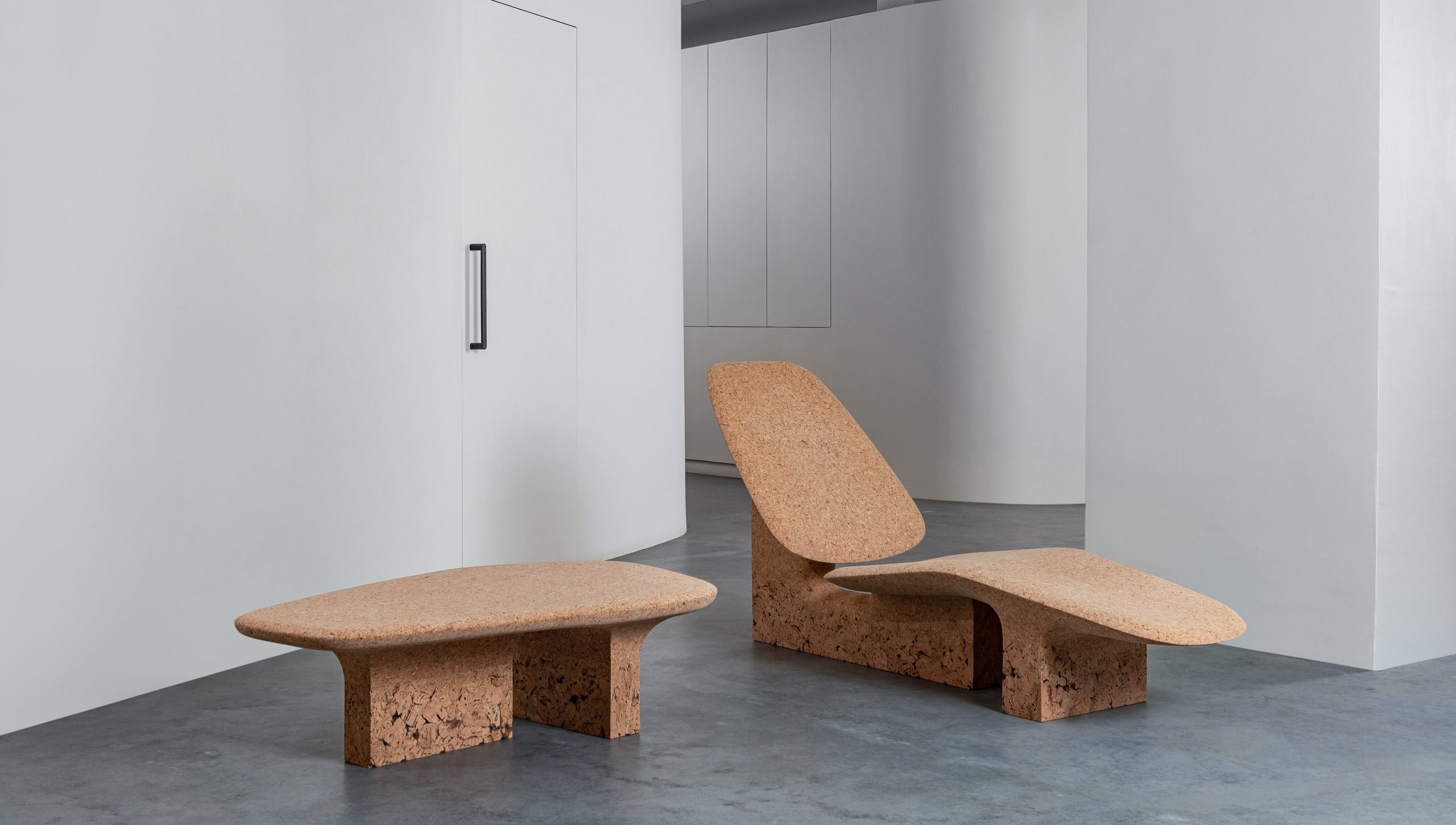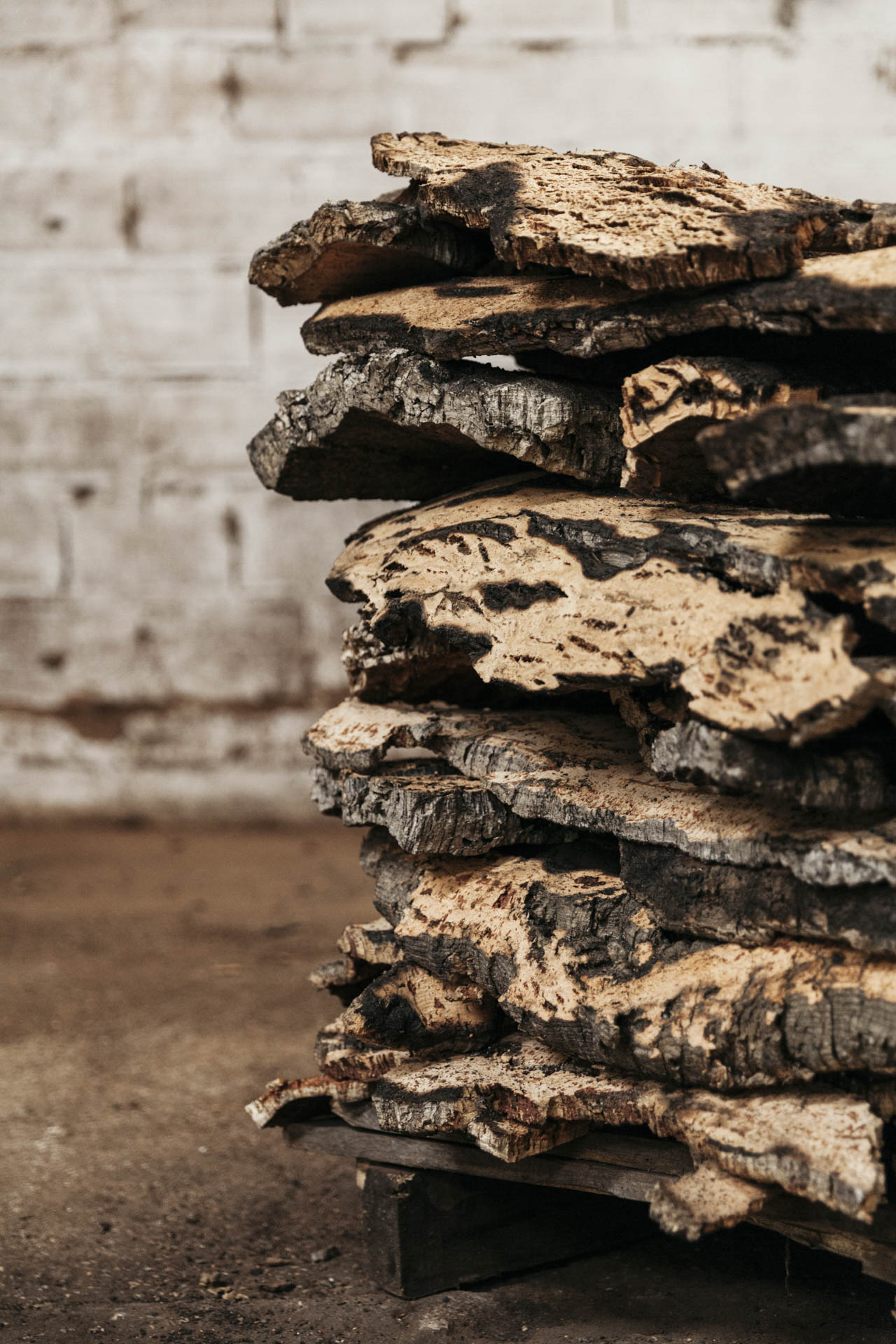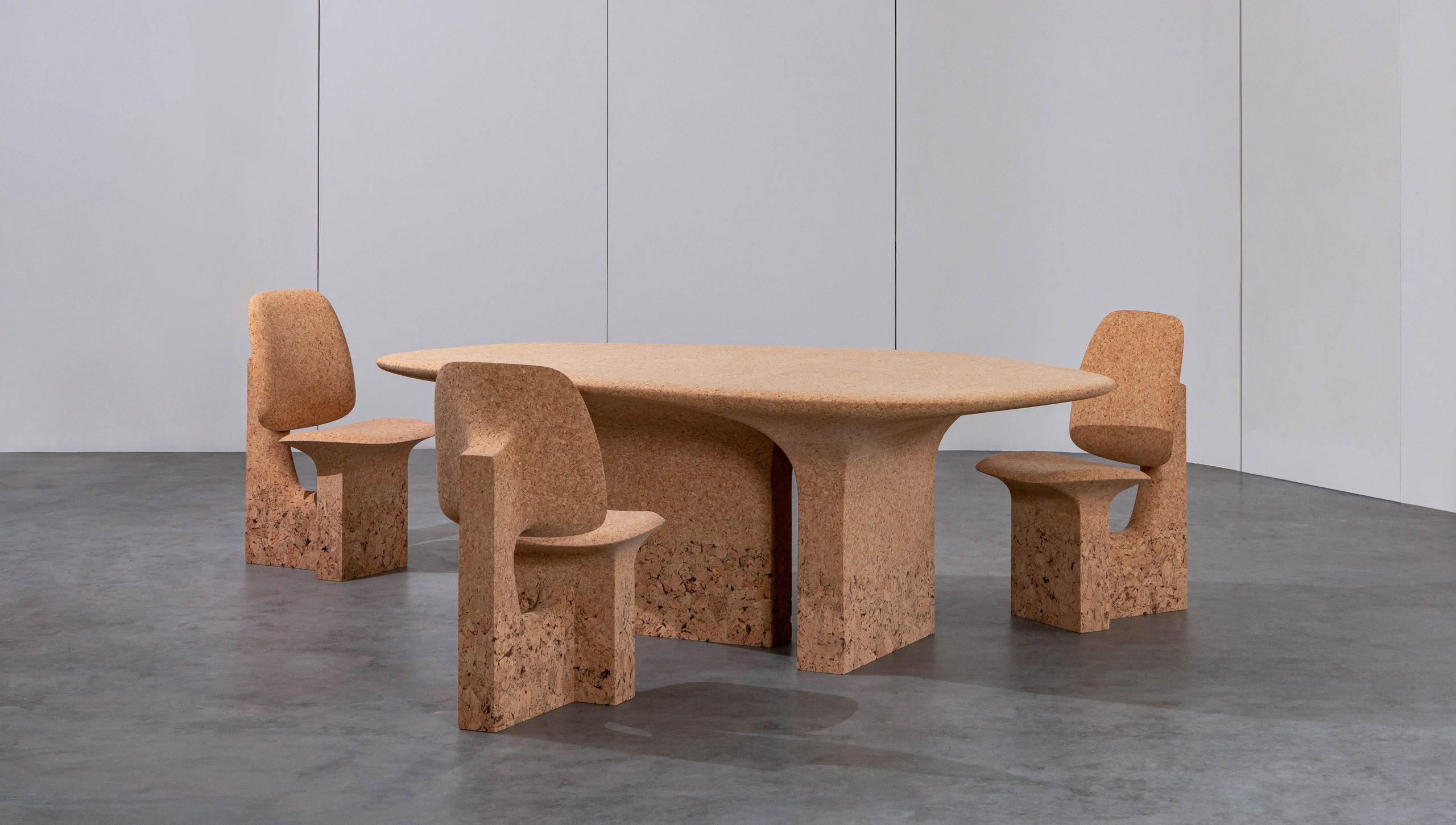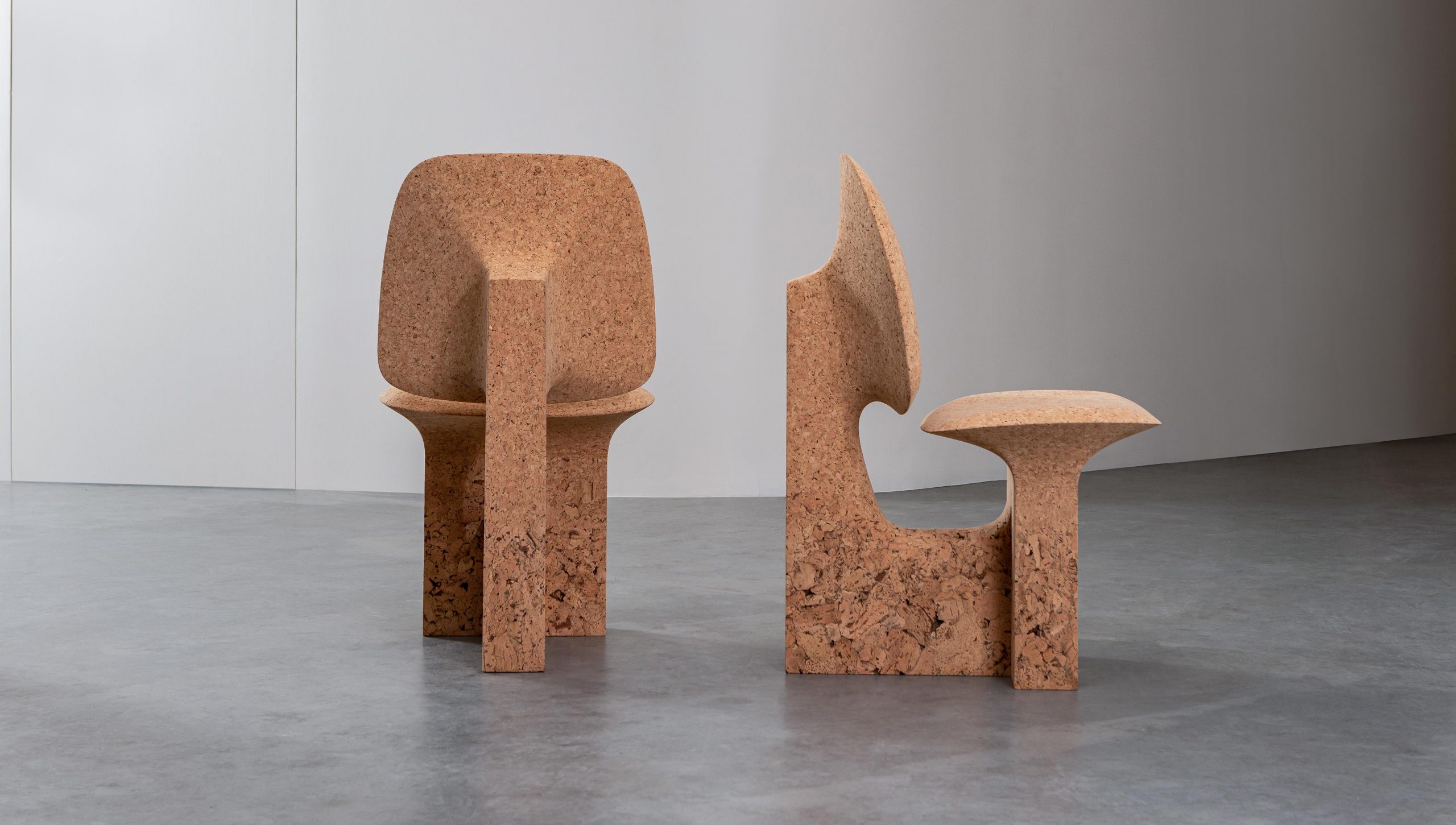Created by designer Noe Duchaufour Lawrance of studio Made in Situ, Burnt Cork is a furniture collection made entirely from fire burnt and discarded cork material that would otherwise not be used.
Inspiration for the collection came from forest fires and a discarded pile of burnt cork that Noe came across.
“When I moved to Portugal in summer 2017, I decided to drive from France alone,” writes Noe on Made In Situ’s website. “It was a 3 day drive during which I sensed a change in my life and the beginning of a new chapter. This road-trip was open to feeling, seeking and finding, eloquently narrated by landscape.”
“Upon entering the country, I was met by flames, burnt forests and charred black trees. It was a shock to drive into these hills ablaze, the inferno consuming the landscape and leaving behind a world of visible entropy. Hauntingly dark, each spike of burnt wood sticking from the ground where a tree used to be,” adds the designer.
“The power of fire struck me, one of the five elements vital to existence on earth, a keystone to the development of culture. It is a transformer of environments: subtle when controlled and aggressive when wild. Fire is somehow always beautiful. Part of me didn’t want to think about this, but I took photos and this experience stayed with me. It made me question my interaction with nature as a designer and as a consumer. I felt it would resurface in the work I was to do here in Portugal,” explains Noe.
According to the Portuguese Cork Association, Portugal is the undisputed world leader of cork in terms of exports with a market share of 62.4% percent as of 2017. Spain comes in second at a measly 18.5% percent market share.
As such, Portuguese cork was right at the top of Noe’s material list that he wanted to use. While visiting a family producer of cork agglomerate blocks, Noe observed a discarded pile of burnt cork and recognized an opportunity to “transform the remnants of the fires, creating our own material as a rebirth.”
“Fire causes transformation, so we are just continuing with that motion into the design and final pieces, with a maximum use of the material optimized for this specific project,” says Noe.
All images in this article are courtesy of Noe Duchaufour Lawrance.










